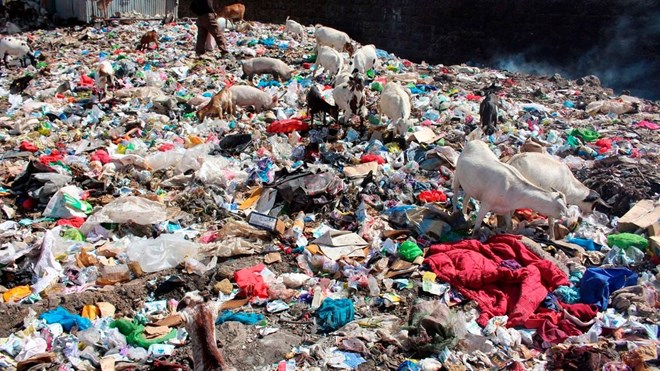
Friday February 2, 2024

Goats rummage through a heap of garbage. Somalia is the latest African country to ban single-use plastics. PHOTO | DENNIS ONSONGO | NMG
Somalia is the latest African country to ban single-use plastics, potentially boosting the growing campaign to limit the use of non-biodegradable packaging material in the war against global warming.
A decree issued on Thursday by the Environment and Climate Change Ministry indicated that the country will stop single-use plastics from June 30, 2024, providing a five-month grace period for importers and users to adjust.
advertisements
“All businesspeople engaged in bag importation, manufacturers, retailers and commercial establishments within the country are hereby notified that as of June 30, 2024, the importation and use of single-use bags shall be prohibited,” read a statement issued by the Ministry.Somalia said the grace period should also give firms involved in the production or importation of plastics time “to explore environmentally friendly alternatives to plastic bags” and that it will work with stakeholders to identify options.
Somalia’s move is significant because it joins other East African Community (EAC) member states Kenya and Rwanda which completely banned single-use plastics.
Uganda and Tanzania have also technically banned the plastics but have struggled with implementing the ban as well as the smuggling of the carrier bags between neighbouring countries.
Like peers in the EAC, the ban means production, importation, trading in it or distribution of single-use plastics is prohibited after June 30, 2024.
Environment and Climate Change Minister Khadija Mohamed Al-Makhzoumi said the move is part of local efforts by her country to “proactively address environmental challenges.”
A study by the Geneva Environmental Network shows plastics have toxic chemical additives and pollutants that threaten human health with health effects including causing cancer or changing hormones that can affect reproductive, growth, and cognitive impairment.